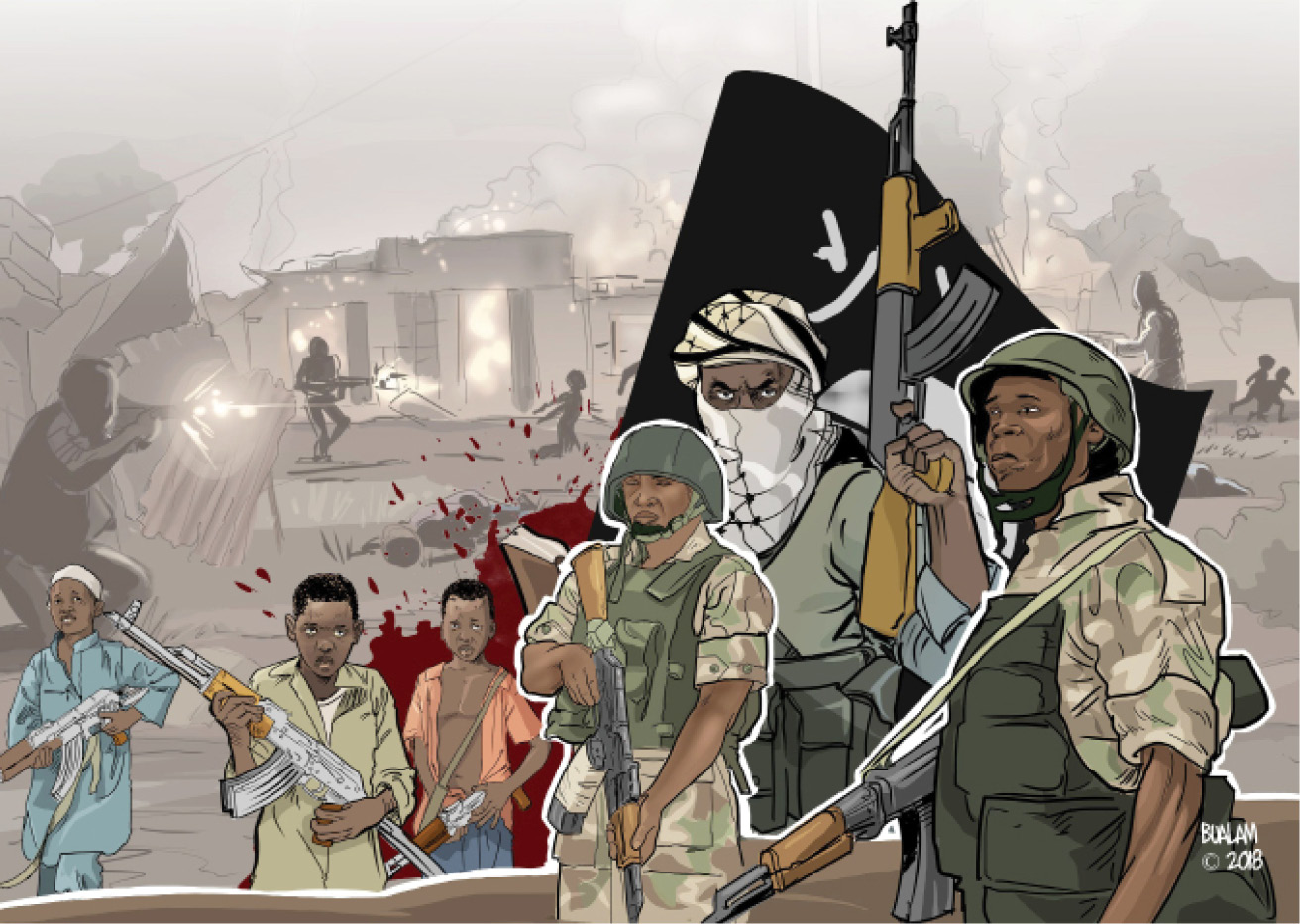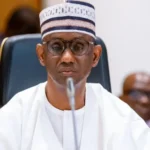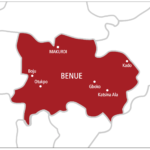It has been an interesting week in Nigeria. First, David Hundeyin’s report, ‘Cornflakes for Breakfast: The Boko Haram Origin Story’ (published in the West Africa Weekly, October 3) created quite a splash. Before the fallout from that has been properly processed, the Pandora Papers emerged, naming some prominent Nigerians, like Kebbi Governor, Atiku Bagudu, the hitherto-clean handed Peter Obi and others of shady financial dealings.
Where to begin?
Well, a lot has been said about Hundeyin’s article, an exposé about some aspects of financing terror in the country. There is no denying Hundeyin’s brilliance in this reportage. He trawled the archives, perused dozens of documents to draw certain conclusions about terror financing. While no one faults the amount of work he put in, many have questioned the conclusions he drew. Some of the pertinent questions that floated as I read his article, I would discover later, had been brilliantly addressed by the dogged researcher and accomplished terrorism scholar, Abdulbasit Kassim in his article “On David Hundeyin’s Cornflakes of Jihad, by Abdulbasit Kassim” published on Daily Nigerian on October 4.
What Hundeyin attempted was an exposé, what he ended up serving was a grand conspiracy theory sprinkled with germane questions. His effort to contextualize several incidents, such as the rise of Boko Haram, of Izala and the late Dr Abubakar Mahmud Gumi within the framework of contemporary terrorism was showmanship in conspiracy theory masonry. His independent investigation of each is resplendent, they just don’t stick together the way Hundeyin would have wanted.
To promote the idea of this grand conspiracy whose principal objective is the “Islamization of Nigeria”, Hundeyin unsuccessfully tried to tie this conspiracy to the late Sheikh Abubakar Mahmud Gumi, who happens to be the father of the controversial Dr Ahmad Gumi. Gumi, of course, a very prominent scholar and champion of Sunni Islam, died in 1992, a full decade before the first stirrings of Boko Haram in Maiduguri. There is no record of any interaction between the late Gumi and Boko Haram founder Mohammed Yusuf. And those who are familiar with Gumi’s preaching would know that it is at variance with the teachings of Boko Haram.
Gumi, for instance, is a known champion of democracy, something Boko Haram abhors. In the 1970s he was outspoken for the rights of women to vote and has hours of recorded preaching advocating for Nigerians to participate in the democratic process.
The image Hundeyin attempted to paint of Gumi as a violent fundamentalist simply falls flat on its face. Gumi is a pacifist to a fault. His preaching on peaceful coexistence is well documented and well noted by American journalist Karl Maier, writing for the Independent in his September 15, 1992 obituary for Gumi.
“But he also preached peaceful coexistence, and refused to condone the outbreaks of religious violence that have threatened Nigeria’s existence as a nation since independence from Britain 32 years ago,” Maier wrote.
He would add that “Gumi stood apart from younger firebrand Muslim preachers such as Ibrahim Zakzaky and Yakubu Yahaya, who refuse to recognise the state of Nigeria because its laws are not Islamic.”
Hundeyin exaggerated Gumi’s importance in the setting up of the Jama’atu Izalatul Bid’ah wa Ikamatus Sunnah in 1978. That organisation was founded by Sheikh Ismaila Idris. Gumi’s role was only advisory as the foremost Sunni preacher in the country at the time.
Hundeyin used his basic research into Gumi’s history to promote an “expert position” that would allow him link Gumi to events that would happen after his death, without any evidence. Of course, gullible people who will read his basic grasp of Gumi’s history as evidence of Hundeyin’s knowledge of the subject would believe he has concrete evidence of Gumi’s links to Boko Haram. It is a common method deployed by the far-right alternative media globally to promote conspiracy theories. It would make more sense to present definitive links between Gumi and the rise of extremism in Nigeria, rather than mere conjectures.
As for the main focus of the article, Ahmed Idris Nasreddin, Hundeyin did a far better job of linking him with terror financing than the conjectures he used on Gumi. He pulled verifiable records and data that certainly raise questions begging for answers.
One of the most pertinent question is that if the US has all the evidence of Nasreddin’s alleged financing of terror, why exactly did they “cut a deal” with him? If this had been the Nigerian government cutting Nasreddin some slack, I suppose, in the context of the prevalent corruption and based on this conspiracy theory, that that could be rationalised. After all, this government sadly has demonstrated over time its unwillingness to prosecute its allies who have been caught with hands in the cookie jar. We all remember the Ganduje dollar stuffing videos and President Muhammadu Buhari’s bizarre excusing of them.
This deal between the US and Nasreddin implies one of two things: a) either the evidence against Nasreddin is not enough to warrant the forfeiture or seizure of his assets, his arrest and trial for financing terrorism or even his blacklisting.
Or b.) the US has bought into the idea of Islamising Nigeria and has chosen to stand aside and let it happen. That would give significant credit to the global jihadi forces that are intent on driving this “conspiracy.”
One other party the article gives undue credit to is perhaps the person of the president. Sheikh Yakubu Musa’s role was well documented by Hundeyin. His attempt to link Yakubu Musa and the president though with regards to pursuing this agenda is circumstantial at best. That Buhari posed in a group photo with Yakubu Musa and some others is watery evidence. Hundeyin attributes far too much intelligence to the men who have had the privilege of governing the country. The complicity is in allowing a person with these unanswered questions over his head access to the president, the complicity of habitually ignoring security reports or willfully not acting on them. The same complicity that has allowed people who have taken arms against the state to be on the payroll of the state like “repentant” Boko Haram fighters or Niger Delta militants.
Many readers, I see, have faulted Hundeyin’s conclusions and quite rightly so but there is no denying that those who would believe everything he said without question will be in the majority, they will find ways to use this as justification of the increasingly prevalent narrative of a grand conspiracy by the North to wield and maintain dominance over the country and to “Islamise” the country; Islamisation, of course, being the pre-eminent narrative of the far-right alternative media in the global West and has over the years been gaining traction in Nigeria.
These questions will of course remain because the Nigerian government, both under Jonathan, a southern Christian, and Buhari, a Northern Muslim, have failed to name the financiers of terror, the knowledge of which, they and their minions, including most recently the EFCC chairman, keep dangling before us. We know the financiers of Boko Haram. We just will not tell you. And we will not arrest them either. This is a recipe for disaster and conspiracy theorists will thrive on this.
The problem here is that conspiracy theories have led to some of the worst crimes in human history. The holocaust derived from the conspiracy theories of “global Jewish dominance” chronicled in a document of questionable origins, The Protocols of the Learned Elders of Zion, just as the Rwandan Genocide was derived from the conspiracy of a Tutsi hegemony. In Nigeria, a Fulani, jihadi hegemony is being preached and the grievous crimes of Fulani herdsmen and the extremely long leash they are allowed by the state through negligence or incompetence play neatly into this narrative. A bomb is ticking and the authorities are toying with it by not revealing these financiers or prosecuting them.
Despite its faulty conclusions, Hundeyin’s article raised questions that the Nigerian state needs to address, through words or actions. But what most Nigerians should bear in mind is that if there is a hegemony they should be wary of, it is that being unfurled by the Pandora Papers. The hegemony of the elite.

 Join Daily Trust WhatsApp Community For Quick Access To News and Happenings Around You.
Join Daily Trust WhatsApp Community For Quick Access To News and Happenings Around You.


